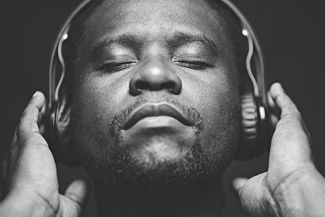Why do certain songs give us the chills?
 Personally, I get the chills every time I hear One by U2 or (in a totally different genre) Nessun Dorma sung by Pavarotti. Do you ever get goose bumps when listening to a piece of music? If you do, your brain may be "unique." Indeed, a recent study carried out by the University of Southern California indicates that people who vibrate in unison with music may have an increased capacity for feeling intense emotions. How does music affect the brain?
Personally, I get the chills every time I hear One by U2 or (in a totally different genre) Nessun Dorma sung by Pavarotti. Do you ever get goose bumps when listening to a piece of music? If you do, your brain may be "unique." Indeed, a recent study carried out by the University of Southern California indicates that people who vibrate in unison with music may have an increased capacity for feeling intense emotions. How does music affect the brain?As a prelude to their research, Matthew Sachs and his colleagues at the Brain & Creativity Institute remind us that the emotions provoked by an esthetic piece of work activate the same reward network in the brain that responds to the basic and sensorial pleasures that apply to food and sex. According to the authors, music represents an ideal stimulus for studying the link between pleasure and reward. Previous research has shown that people that listen to music can feel a complex range of bodily sensations such as chills, a knot in the throat, a tingling sensation in the scalp, etc. Their manifestation is related to psychophysiological changes in heart rate and skin conductance as well as specific neuronal activity in the brain areas that process emotion and reward. But not everyone experiences intense emotions when listening to music. The research carried out by M. Sachs seeks to explain these individual variations by trying to better understand their neural basis.
First, the research team developed an online survey that was sent to the academic community in the Boston area. 237 people responded to various questions designed to assess their emotional relationship to music. From this survey, 20 participants (average age = 21.6 years; 8 men and 12 women) were selected and divided into two groups: the “Chill group” (those who stated that they regularly had chills when listening to music) and the "Non-chill" group (those who stated that they rarely or never experienced the sensation). During the course of the experiment, each subject listened to six excerpts: three favorite songs and three controls (popular songs that hadn't previously solicited intense emotion). They were then asked to evaluate their emotional responses on a scale from 1 to 10 and to signal when they felt chills by pressing the spacebar. In addition, psychophysiological data (heart rate and skin conductance) and brain scans (with Diffusion tensor imaging, DTI) were recorded.
The results of the real-time assessments about pleasure experienced and the psychophysiological measures reveal the differences between the two groups of participants. The DTI data indicates that in the "Chill group,” the brain connections between the auditory cortex and the emotional and social processing centers (the anterior insular and the medial prefrontal cortex) are significantly higher than in the “Non-chill” group.
The authors are well aware that the sensations felt while listening to music can be associated with individual memories (which can't be controlled in the laboratory) and that their study's sample size is too small to draw any hard conclusions. But they’ve decided to extend their research on the neurological basis of these reactions to music in order to apply them to therapeutic uses: “Depression causes an inability to experience pleasure of everyday things. You could use music with a therapist to explore feelings.”
Source: Matthew E. Sachs, Robert J. Ellis, Gottfried Schlaug, Psyche Loui, “Brain connectivity reflects human aesthetic responses to music”, in Social Cognitive and Affective Neuroscience, Volume 11, Issue 6, 1 June 2016







